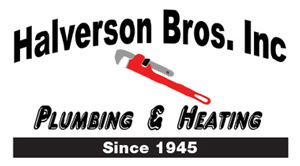Purchasing your first home is exciting. You’re likely trying to keep track of numerous details to ensure you’re making the right choice. We believe that gaining insight into your potential new HVAC system is vital. The property’s HVAC system represents a substantial investment and source of potential long-term costs, illustrating why a detailed inspection should be a top priority for first-time homebuyers.
In the following guide, we’ll share seven tips for discovering all there is to know about a home’s heating and cooling setup. And if you want a more in-depth opinion from the pros, feel free to call Halverson Brothers Inc. Our seasoned technicians can weigh in on your options with industry insights you won’t find elsewhere.
1. What Type of HVAC System Is It?
Start by determining what kind of HVAC system the home includes. Furnaces tend to last longer compared to air conditioners, and newer types of HVAC systems like heat pumps can offer average life spans that are impressively long. Knowing the make and specific model ensures you have a much better sense of how much routine maintenance it might need.
2. How Long Ago Was the System Installed?
Another good idea is to find out how old the HVAC system is when you’re looking at a new home. On average, HVAC systems tend to run for about 10-12 years. Having the knowledge of when it was installed helps you anticipate future maintenance needs or when it might eventually stop working. Older systems may be more vulnerable to problems, so budgeting for a replacement unit might be needed faster than expected.
3. Does the System Have a Warranty?
Check if the HVAC system is covered by a warranty. If it is, that’s great news because it can lighten the load for maintenance expenses. HVAC warranties often cover parts and labor, but the details in each policy will vary. Don’t forget to look into any terms you don’t recognize to make sure you fully understand your coverage and the likelihood of out-of-pocket costs.
4. Does the System Have a Documented Maintenance History?
Don’t forget to check the maintenance history of the HVAC system, if this kind of history is accessible. This kind of information can reveal if the repair needs are high or how much upkeep was provided. Ask about records for key tasks like filter changes, which can indicate it received regularly scheduled tune-ups.
5. Do You Know Its Energy Efficiency Ratings?
Selecting a system with great energy efficiency isn’t just smart; it leads to lower utility bills and a smaller environmental impact. Look for the seasonal energy efficiency ratio (SEER) ratings for air conditioning as well as the annual fuel utilization efficiency (AFUE) for furnaces. High SEER ratings mean more efficient cooling throughout the season, while high AFUE ratings mean the fuel is efficiently converted into useable heat.
6. Did You See Any Problems During Your Inspection?
Even without the know-how of an HVAC technician, it’s still a good idea to check out the HVAC system on your own. Keep an eye out for signs of problems that weren’t mentioned by the seller or real estate agent. This can mean bizarre noises, spots with uneven heating or cooling and attempts to cover up any obvious damage.
7. Have You Asked Your Local HVAC Professional?
If you’re still hesitant to make an offer because of the current state of the HVAC system, it’s beneficial to get input from certified HVAC technicians. They can spot things you might miss, including leaks in the refrigerant, bad electrical connections or inefficient ductwork.
A Call with Halverson Brothers Inc Helps Take the Stress Out of Your Home-Buying Journey
Selecting your first home should be thrilling, and Halverson Brothers Inc wants to ensure yours is too. Reach out with us at 715-352-4052. We can go over the details about how our HVAC services give you peace of mind, giving you what you need to dive into home-ownership with confidence.






